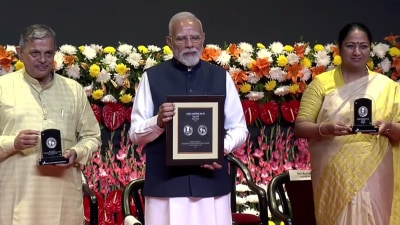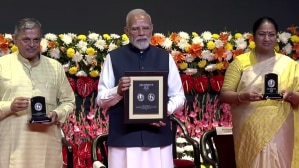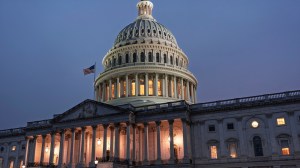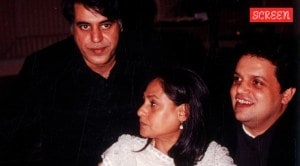‘We can share power but no talk of a separate homeland’
The Sri Lanka government and the LTTE will hold their first direct talks in three years, beginning on Wednesday at Geneva. On the eve of the...

The Sri Lanka government and the LTTE will hold their first direct talks in three years, beginning on Wednesday at Geneva. On the eve of the Norway-brokered talks, Sri Lankan President Mahinda Rajapaksa tells Padma Rao-Sundarji, Southasia Bureau Chief, Der Spiegel, that the only way forward for the two disputing parties is to resume negotiations. Excerpts:
Q. Mr President, a ceasefire held but peace talks with the Liberation Tigers of Tamil Eelam (LTTE) broke down three years ago. Beginning with the assassination of your former foreign minister Lakshman Kadirgamar in August last year, bloodshed is once again on the rise. Both the Tigers and Sri Lankan troops have violated the ceasefire, 200 persons were killed in the last months alone. So what made you suddenly decide to talk to the LTTE this week?
A
. It was precisely the violence of the last months that motivated me to pick up negotiations again. We’re all human beings, Tamils and Sinhalas. Instead of killing each other, we can talk, can’t we?
Q. The peace process has broken down so often in the past. Do you have a secret ingredient this time that gives you greater confidence about the talks commencing on Wednesday?
A
. I have no secret ingredients and by the way, I know just as many people who are positive about the outcome of the talks. Geneva will be a new beginning and we have to build upon it. Failure in the past is no reason to abandon the peace process altogether. Of course, we hope that the LTTE, on its part, will bring with it the desire to stop violence.
Q. Critics say that your election campaign last year was marked by fiery rhetoric against the LTTE, largely to please right-of-centre Sinhala parties like the JVP and the JHU, your coalition partners today. What do your allies think of these talks?
A
. I am amazed at how the international media has dubbed me a hawk and a hardliner. Can you please give me one example of when I may have spoken in such tones? On the contrary, I offered a hand of peace to Tiger chief Velupillai Prabhakaran early on in my election campaign. At the same time, I wanted it to be known in no uncertain terms that I will do my best for a united Sri Lanka.
Q. You have categorically ruled out a ‘‘separate homeland’’ for the Tamils. Is there now a greater readiness to examine other blueprints that have been floated: confederalism, federalism, devolution, even an ‘‘interim self-governing authority’’ of sorts for the LTTE and the Tamils of the North and Northeast?
A
. Sri Lanka is home for all its citizens. It is a small country. We can share power and can develop a new model based upon all the suggestions made up to now. But there can be no talk of a separate homeland for Tamils in Sri Lanka.
Q. You will admit that after the tsunami of December 2004, your own SLFP failed to find a workable mechanism to distribute relief funds from donor countries along with the LTTE, build much-needed mutual trust and create a solid basis for future talks.
A
.Yes, you’re right, we were divided in Colombo at the time over the conditions laid down on how to share the funds donated by the international community and distribute them. Actually, even the LTTE were not pleased with the conditions, and even our Supreme Court finally declared them flawed.
Q. The Ceasefire Agreement (CFA) of 2002 was between Colombo and the LTTE. Since April 2004, there is, however, a third faction, that of runaway LTTE rebel Karuna, who has waged battle against the LTTE ever since. Also, the LTTE wants not an immediate resumption of the peace talks themselves, but an immediate re-working of the CFA.
A
. These talks are aimed at ending the violence and to examine how best to implement the existing CFA. Yes, we’ll certainly have to take a fresh look at the document but we do hope that these early steps will help us commence peace talks soon.
Q. The Tigers—and many international analysts—accuse Colombo of protecting and even arming the runaway rebel Karuna in his eastern headquarters of Batticaloa and using his troops as ‘‘paramilitaries’’ against the LTTE. One of the LTTE’s key demands at talks on Wednesday will be that Colombo stops supporting him.
A
. I would like to make one thing very clear. My government knows nothing about such ‘‘paramilitaries’’ or even of Karuna. The Norwegian peace monitors have themselves clarified that the Sri Lankan Army has nothing to do with any armed groups operating in eastern Sri Lanka. Still, my government is committed to disarming such groups and we have already begun to do so.



- 01
- 02
- 03
- 04
- 05




























